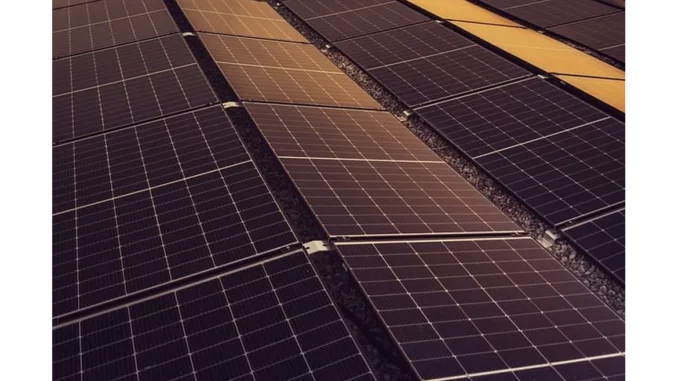
In a notable advancement for sustainable energy initiatives, Tesco has unveiled a significant agreement to procure solar energy from the Cleve Hill solar park in Kent. This arrangement, heralded as the largest corporate solar power purchase agreement within the United Kingdom, will furnish Tesco with sufficient renewable energy to power 144 of its larger supermarket outlets. As the global community confronts the imperative to transition towards cleaner energy sources, Tesco’s strategic move marks a critical juncture in the corporate sector’s approach to environmental responsibility.
Discover how Focus360 Energy aids sustainable development with Sustainability Statements.
The Cleve Hill solar park, a project spearheaded by Quinbrook Infrastructure Partners, is poised to become the largest solar and battery storage initiative in the UK. Situated on farmland near Faversham, it will feature a robust capacity of 373 megawatts, comprising more than 560,000 solar panels spread across the site. These panels, some reaching the height of double-decker buses, will harness sunlight and convert it into electricity. This energy will then be stored within the site’s battery infrastructure, ensuring availability during peak demand or periods of reduced sunlight. Expected to commence operations in early 2025, the Cleve Hill project signifies a substantial investment in the UK’s renewable energy sector, with a total expenditure of £450 million. This underscores the escalating significance of large-scale renewable projects in meeting both national and corporate sustainability objectives.
For Tesco, the agreement with Cleve Hill is a continuation of its expansive strategy to transition towards renewable energy. Over the preceding five years, the supermarket titan has engaged in a series of power purchase agreements (PPAs) with wind farms and solar parks across the UK. These strategic alliances aim to satisfy 45% of Tesco UK’s electricity needs by the year 2030, with Cleve Hill expected to contribute 10% of this demand over a 15-year period. Ken Murphy, Chief Executive of Tesco, described the agreement as a “major milestone” in the company’s quest to achieve carbon neutrality by 2035. By securing a dependable supply of green energy, Tesco not only mitigates its carbon footprint but also exemplifies corporate leadership in addressing climate change.
The ramifications of Tesco’s renewable energy commitment extend beyond the company itself and reflect a broader trend of major corporations adopting sustainable practices to lessen their environmental impact. As the UK strives to establish a carbon-neutral economy by 2050, the role of corporate power purchase agreements in propelling the shift to clean energy is pivotal. In the first quarter of 2023, renewable sources accounted for 48% of all UK electricity, underscoring the growing prominence of clean energy in the national power mix.
The Cleve Hill project serves as a model for the future of energy transition infrastructure in the UK. By integrating solar power with battery storage, it illustrates how renewable energy can be effectively harnessed and utilised, even in the face of unpredictable weather conditions. This innovative approach not only optimises the efficiency of renewable energy but also enhances the resilience of the power supply.
Tesco’s groundbreaking solar energy agreement with Cleve Hill solar park exemplifies the increasing significance of renewable energy in the corporate arena. As corporations like Tesco take the lead, the shift towards sustainable practices becomes both feasible and imperative. Through such initiatives, they contribute significantly to a cleaner, more sustainable future, setting a benchmark for others to follow in the pursuit of environmental stewardship.


Be the first to comment